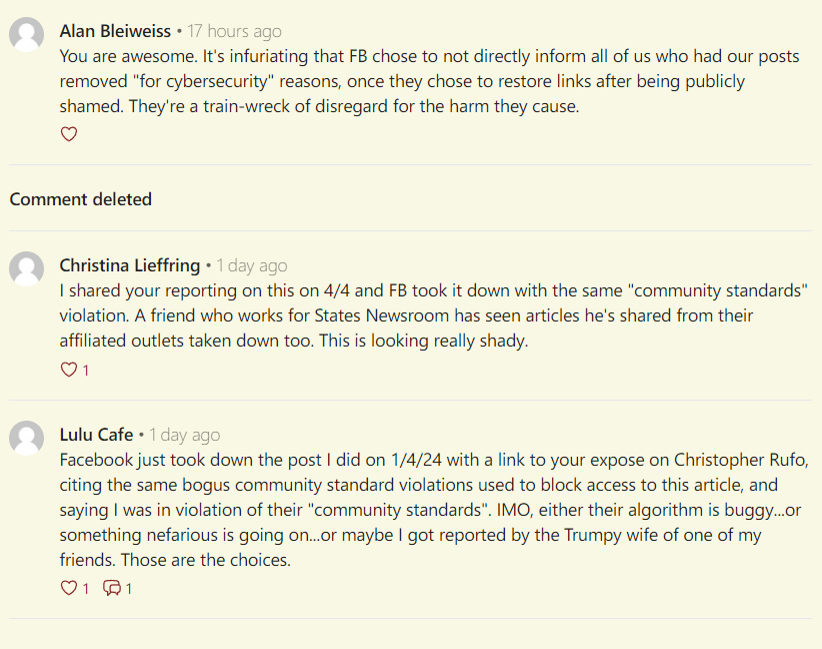Kurt and I have very different brains, if you read this thread that I jumped in on.
I am sure he is right on how things should work. Get me talking about spacing and spelling, and I’d be in the same boat. Or the use of the word billion. I have my ideas on all of these, but not everyone follows them.
But in the Wikipedia article he cites, not everyone accepts that [email protected] and [email protected] are the same—and certainly my own experience backs this up. You won’t be able to email me, for example, if you miss the punctuation. I also won’t be able to reach employees at some of the big media players on this planet.
I know Gmail would like us to think that a dotted and non-dotted email address are the same, and says as much, but there are just too many stories out there of people receiving emails not meant for them.
And you know what I think of Google: what it says and what it does have not always been the same thing.
Kurt believes all those people have fed in the wrong address for their emails to wind up with others. It’s entirely possible, but for one tale that I linked to, on Reddit.
A former network engineer, Dan Hoyer, said, inter alia:
So, bottom line is that Gmail didn’t always ignore dots, and people who had dots but had that address first were merged with the non dotted accounts and started receiving email from someone else’s non dotted account in addition to their dotted version. (I am not sure, but I believe the reverse may have happened too if the non dotted name came first.)
And in the replies, Melissa Chapman says:
I am with you about the change. It 100% used to see dots and they were suggested to users as alternate forms when you created your gmail. I’ve gotten email for people with my same maiden name in California, New Jersey, Minnesota, and most recently France. And not just junk mail, but Paypal, church tithes, and utilities. It’s frustrating that Google completely denies that this is the case! I don’t use my older email much, but I also wonder if the other user has some access or gets some emails. Like with Paypal, they had confirmed their email to create the account!
Now, if Melissa is telling the truth, then there is an issue with Gmail, where someone else can get your emails. If what Kurt says is right, then Melissa’s claim about the Paypal account’s verification by another user is impossible if someone else did not register a variant of her address on Gmail separately, and was told that it was accepted.
With respect, if someone is ignoring certain claims, it’s probably because they don’t want to open their minds to the possibility that their belief system is wrong. I remember that from an earlier Google experience—and what kicked off my de-Googling in 2009. As I said, I accept Kurt’s position on how things should be—but in practice not everyone is strict about things, and the computer world is as rife with examples as any other.





Two things can be true at the same time.
I’d bet (simply based on the ease of setting up a free GMail account and the sheer number of them that exist) the GMail folks (and I am one) err more often than average in typing in their own address.
But I wonder – and I would hope someone’s rigorously testing this – if two people couldn’t have variants of the same address that SHOULDN’T be treated as separate but are.
Shoot, I’ve had this happen on a phone line, so why wouldn’t it happen on an email address? I answered my landline, once, and so did a strange man. The call was for him, by the way – it just rang on my handset and I was able to join in. He was livid. After I got over my terror that some stranger was in the house and he realized it wasn’t MY fault I was able to participate in the call, we realized the phone company had done something screwy and we contacted them to fix it. At first, they tried to swear it couldn’t happen, but it clearly DID.
I think so, too, but Kurt doesn’t seem to believe it’s possible. Pity.
In that Mastodon thread, someone jumped in to counter his statement about servers. And of course it gels with real-world experience: try missing a dot in an email to The New York Times—it won’t get through.
I’ve had that phone line bug happen many times. There’s even a term for it in Cantonese because it’s so common. Heck, the phone here used to make calls by itself—dozens of them—daily, to a number in another city. It was never fully solved. Luckily the calls were free but we are talking up to 60 a day, to a number that sounded like a fax. The phones weren’t programmed to do this, there were no devices in the house hooked up to the copper phone line that were smart enough to, but it happened.